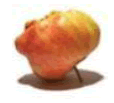e-ISSN: 2321-6182 p-ISSN: 2347-2332
e-ISSN: 2321-6182 p-ISSN: 2347-2332
Yen-Lun Su*
Department of Hotel and Restaurant Management, National Pingtung University of Science and Technology, Pingtung, Taiwan
Received: 07-Mar-2023, Manuscript No. JEAES-23-91100; Editor assigned: 09-Mar-2023, Pre QC No. JEAES-23-91100(PQ); Reviewed: 23-Mar-2023, QC No. JEAES-23-91100; Revised: 30-Mar-2023, Manuscript No. JEAES-23-91100(R);Published: 07-Apr-2023, DOI:10.4172/23477830.2023.11.001
Citation: Su YL. Taiwanese Consumer’s Risk Perception and Purchase Intention towards Abnormally Shaped Foods. RRJ Ecol Environ Sci. 2023;11:003
Copyright: © 2023 Su YL. This is an open-access article distributed under the terms of the Creative Commons Attribution License, which permits unrestricted use, distribution, and reproduction in any medium, provided the original author and source are credited.
Visit for more related articles at Research & Reviews: Journal of Pharmacognosy and Phytochemistry
The author conducted two studies. Results of study one reveal that Taiwanese participants perceive a strong belief that abnormally-shape foods are the result of Genetic Modification (GM) technology, and this Genetic Modification (GM) belief resulted in higher risk perceptions for the abnormally-shape food products. Study two indicated that food shape influences purchase intentions; consumers are more likely to purchase normally shaped fruits and vegetables than moderately or extremely abnormally shaped food. Pro-environmental self-identity drives purchase intentions, such that participants with high levels of pro-environmental self-identity express higher purchase intentions toward abnormally shaped food.
Study one employed a convenient sample of 676 adult participants that were randomly selected from groups of an online social media line [1]. The authors used the same test products with varied images of an apple, lemon, carrot, and eggplant according to three levels of shape abnormality (normal, moderate abnormal, extreme abnormal) (Table 1). Results supports that consumers perceive abnormally-shaped foods as greater risky, and they associate natural food shape-abnormalities with GM [2]. Results are consistent with prior findings [3]. This study demonstrates that decreasing consumers’ GM belief may prevent risk perceptions. Findings from this study confirm that concern over the safety of consuming food with genetically modified organisms has increased in Taiwan. The government has tightened up rules on GM labeling to ensure that consumers are well informed about what they are eating.
| Configuration | Apple | Lemon | Carrot | Eggplant |
|---|---|---|---|---|
| Normal |  |
 |
 |
 |
| Moderately abnormal (50%) |
 |
 |
 |
 |
| Extremely abnormal (100%) |
 |
 |
 |
 |
Table 1. Experimental stimuli (Three levels of shape abnormality).
Food products must be labeled if the GM content represents at least 3% of the total, rather than the previous 5%, thereby increasing the number of products that will bear GM labels. The new rules can help hypermarkets and supermarkets to promote abnormally-shaped foods by non-GM labels to decrease risk perception and increase purchase intention.
In study two, A 3 (food shape abnormality: normal, moderately abnormal, extremely abnormal) × 2(pro-environmental self-identity: strong, weak) between and within-subjects design was used [4]. A convenient sample of 400 participants was randomly selected from groups of an online social media line and was randomly assigned to one of the three conditions of fruits and vegetables being normal, moderately abnormal, and extremely abnormal. Like results in Western counterparts, this study indicates that Taiwanese consumers have the highest purchase intentions for normally shaped food compared to any food shape abnormality. Results show a positive relationship between pro-environmental self-identity and purchase intentions for abnormal food, which means there are some Taiwanese consumers who will buy abnormally shaped food. With the increasing self-identity about the environment, this segment is growing. Retailers may be well advised to rethink their policy of excluding food with shape abnormalities, because an increasing share of consumers is willing to buy them. More enterprises are willing to launch contributions of unsold or unattractive perishable goods to nongovernmental groups by doing their social responsibilities for environmental concern. More restaurants are encouraged to use unattractive but otherwise wholesome produce. These all help to prevent fruits and vegetables that fail to meet the strict aesthetic standards demanded by vendors from ending up on the trash heap. Communication campaigns and education programs are need to continuously increase environmental concern among Taiwanese consumers to fight against food waste resulting from tossing natural food shape-abnormalities.